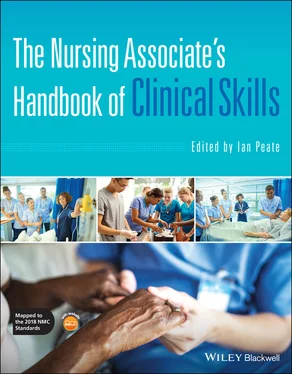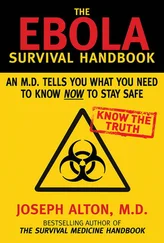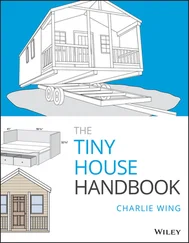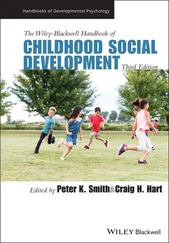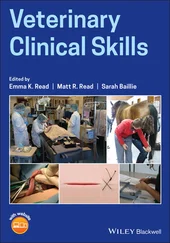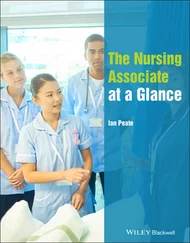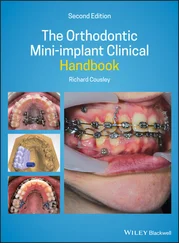The Nursing Associate's Handbook of Clinical Skills
Здесь есть возможность читать онлайн «The Nursing Associate's Handbook of Clinical Skills» — ознакомительный отрывок электронной книги совершенно бесплатно, а после прочтения отрывка купить полную версию. В некоторых случаях можно слушать аудио, скачать через торрент в формате fb2 и присутствует краткое содержание. Жанр: unrecognised, на английском языке. Описание произведения, (предисловие) а так же отзывы посетителей доступны на портале библиотеки ЛибКат.
- Название:The Nursing Associate's Handbook of Clinical Skills
- Автор:
- Жанр:
- Год:неизвестен
- ISBN:нет данных
- Рейтинг книги:4 / 5. Голосов: 1
-
Избранное:Добавить в избранное
- Отзывы:
-
Ваша оценка:
- 80
- 1
- 2
- 3
- 4
- 5
The Nursing Associate's Handbook of Clinical Skills: краткое содержание, описание и аннотация
Предлагаем к чтению аннотацию, описание, краткое содержание или предисловие (зависит от того, что написал сам автор книги «The Nursing Associate's Handbook of Clinical Skills»). Если вы не нашли необходимую информацию о книге — напишите в комментариях, мы постараемся отыскать её.
The Nursing Associate’s Handbook of Clinical Skills
The Nursing Associate’s Handbook of Clinical Skills
The Nursing Associate's Handbook of Clinical Skills — читать онлайн ознакомительный отрывок
Ниже представлен текст книги, разбитый по страницам. Система сохранения места последней прочитанной страницы, позволяет с удобством читать онлайн бесплатно книгу «The Nursing Associate's Handbook of Clinical Skills», без необходимости каждый раз заново искать на чём Вы остановились. Поставьте закладку, и сможете в любой момент перейти на страницу, на которой закончили чтение.
Интервал:
Закладка:
10 Nursing and Midwifery Council. (2018b) Standards of proficiency for nursing associates, London: Nursing and Midwifery Council.
11 Public Interest Disclosure Act . (1998) [online] Available: https://www.legislation.gov.uk/ukpga/1998/23/contents. Accessed 21 August 2019.
12 Royal College of Nursing. (2010) Dyslexia, dyspraxia and dyscalculia: a toolkit fir nursing staff, London: RCN.
13 Royal College of Nursing. (2015) Record keeping: the facts, London: RCN.
9 Addressing Compliments and Complaints
Ian Peate
School of Health Studies, Gibraltar
Chapter Aim
This chapter aims to provide the reader with an awareness of the National Health Service (NHS) complaints procedure and how to manage compliments and feedback.
Learning Outcomes
By the end of this chapter, the reader will be able to:
Demonstrate an awareness of the NHS complaints procedure
Discuss the stages of a complaint
Outline the role of the Parliamentary Health Service Ombudsman
Understand how receiving feedback regarding compliments as well as complaints has the potential to enhance care provision
Test Yourself Multiple Choice Questions
1 All complaints:Must go through a formal processHave to be reported to the NMCShould be used as a form of feedback and an opportunity to learnMust be documented in a member of staff’s personal file
2 Revalidation is:A requirement only impacting on the registered nurse and midwifeThe process that allows the nursing associate to maintain their registrationUndertaken every yearAlso called CPD
3 If accepting a gift:This might be seen as an attempt for the patient to gain preferential treatmentThe nursing associate must report this to the NMCThe nursing associate must report this to the NMC and the Chief Executive OfficerThe nursing associate must include this in their annual appraisal (annual review)
4 Feedback may come from:Colleagues and managementPatients and service usersHealthcare and social care studentsAll of the above
5 Refusing to accept a gift:Will always enhance care provisionHas the potential to damage relations with the patientCan cause corporate harmIs a hallmark of a profession
Introduction
The nursing associate may receive feedback from a number of people in a number of formats, for example, through complaints and feedback in the form of compliments. The trainee nursing associate receives ongoing performance feedback about their progress throughout their nursing associate programme of study. There are specific procedures, local and national, that must be followed when a complaint has been made.
The Nursing and Midwifery Council’s (NMC) (2018a) Code requires the nursing associate to respond to any complaints made against them professionally; in order to do this, they must never allow someone’s complaint to affect the care that is provided to them; all complaints should be used as a form of feedback and an opportunity to learn from this through reflection so as to improve practice. In order to uphold your position as a nursing associate, you must refuse all but the most trivial gifts, favours or hospitality; if you accept them, this could be interpreted as an attempt for the patient to gain preferential treatment (Nursing and Midwifery Council 2018a). On admission to the register, the Nursing Associate Proficiencies (Nursing and Midwifery Council 2018b) require the trainee nursing associate to demonstrate they are able to respond to feedback to develop professional knowledge and skills.
Compliments
From time to time, a patient or a member of the patient’s family may wish to express their gratitude to the nursing associate or the team to show that they care for what they have done. The gratitude can be expressed in many ways: verbally, a thank you card, a box of chocolates, a bowl of fruit or a packet of biscuits. All of these can be gratefully received with thanks and used as evidence to support the quality of care given, yet the NMC (2018a) compels you to refuse all but the most trivial gifts, favours or hospitality.
Green Flag
 There may be organisational polices that require you to declare any gift you receive. This is done in part to ensure transparency and reducing potential conflicts of interest.
There may be organisational polices that require you to declare any gift you receive. This is done in part to ensure transparency and reducing potential conflicts of interest.
NHS England (2017a) has produced guidance for staff regarding managing conflicts of interest in the NHS.
Indeed, revalidation, the process that allows nursing associates to maintain their registration with the NMC, demands that you receive feedback, written or verbal, formal or informal. The feedback may come from patients and service users or colleagues and management (Nursing and Midwifery Council 2019).
Blue Flag
 Refusing to accept a gift has the potential to damage relations with the patient. Accepting a patient’s gift can be beneficial; it can strengthen the friendly relationship between the nursing associate and the patient by acknowledging the patient’s autonomy, adding to the patient’s self‐worth and to reinforce trust.
Refusing to accept a gift has the potential to damage relations with the patient. Accepting a patient’s gift can be beneficial; it can strengthen the friendly relationship between the nursing associate and the patient by acknowledging the patient’s autonomy, adding to the patient’s self‐worth and to reinforce trust.
Individuals might derive great pleasure from giving gifts, and if a gift is rejected, this has the potential to hurt or offend the person who is giving.
There is pleasure in both giving and receiving, and usually no harm is done; however, the nursing associate must always be cautious about accepting any gift. Organisational guidelines (local policy and procedure) may help to decide on the appropriateness or inappropriateness of receiving any kind of gift, monetary or otherwise. There are alternatives to gift giving, for example, the patients or their family could:
Make a donation to a charity
Make a contribution to the hospital, clinic, unit charity fund if there is one
Complete an employee recognition form or write a letter
Provide feedback via the Friend and Family Test
Touch Point
If you are given a gift (a tangible gift) regardless of value, you should politely refuse it. Always seek advice about accepting a gift from patients or their family.
Managing Complaints
Most of the time, the care that is provided to people in the NHS and by other care providers such as those in the independent and voluntary sectors is of a high standard with positive outcomes. However, things can and do go wrong from time to time and complaints are made.
The total number of all reported written complaints in 2017–2018 was 208,626. This is the equivalent to 4,012 written complaints a week or 572 complaints per day (NHS Digital 2018). The NHS has a single approach that deals with complaints allowing flexibility to respond and to learn from mistakes that may have been made.
The NHS Constitution (DHSC 2015) describes principles and values of the NHS in England and also provides information on how complaints can be made about NHS services. The Constitution has been updated and includes additions and developments associated with:
Patient engagement
Feedback
Duty of candour
End‐of‐life care
Integrated care provision
Complaints
Patient information
Staff rights, responsibilities and commitments
Dignity, respect and compassion
When a person is unhappy with the services they receive, it is important for the nursing associate to inform them (and, if appropriate, their family) of their rights. People have the right to make a complaint about any aspect of NHS care, treatment or service. The Local Authority Social Services and NHS Complaints (England) Regulations 2009 is the legislation that governs NHS complaints. These regulations make provision for complaints made on or after 1 April 2009; they introduced a revised procedure for the handling of complaints by local authorities, in respect of complaints about adult social care and by NHS bodies, primary care providers and independent providers in respect of provision of NHS care. The regulations united adult social care and health complaints processes into a single set of arrangements.
Читать дальшеИнтервал:
Закладка:
Похожие книги на «The Nursing Associate's Handbook of Clinical Skills»
Представляем Вашему вниманию похожие книги на «The Nursing Associate's Handbook of Clinical Skills» списком для выбора. Мы отобрали схожую по названию и смыслу литературу в надежде предоставить читателям больше вариантов отыскать новые, интересные, ещё непрочитанные произведения.
Обсуждение, отзывы о книге «The Nursing Associate's Handbook of Clinical Skills» и просто собственные мнения читателей. Оставьте ваши комментарии, напишите, что Вы думаете о произведении, его смысле или главных героях. Укажите что конкретно понравилось, а что нет, и почему Вы так считаете.
